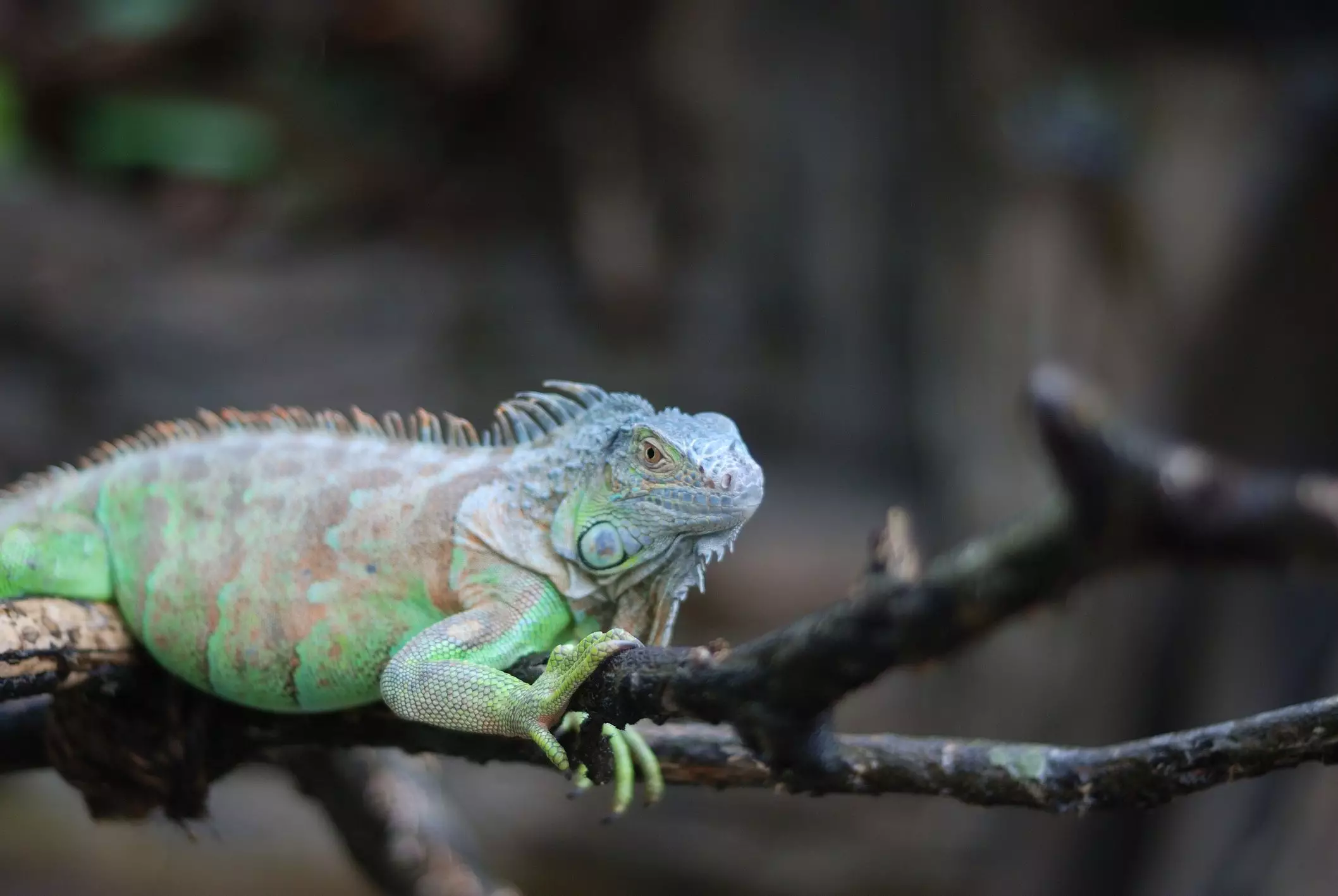Iguanas have gained significant popularity among reptile enthusiasts as pets. Known for their striking appearance and unique behaviors, these fascinating lizards can quickly capture the hearts of their owners. Native to the lush environments of Central and South America, iguanas are an exotic choice for those looking to add a touch of the wild to their homes. However, potential pet owners must be cautious, as iguanas are more than mere ornamental companions; they represent a substantial commitment that demands serious consideration.
One of the most surprising aspects of iguana ownership is their sheer size. Adult iguanas can grow up to 7 feet in length, with weights reaching approximately 20 pounds. This starkly contrasts with the tiny hatchlings that many first-time owners encounter in pet stores. Consequently, the transition from a small pet to a significant animal necessitates an appropriately sized habitat, as conventional aquariums or small enclosures become inadequate almost immediately. In fact, a comfortable environment for a single iguana should be around 12 feet long, 6 feet wide, and 8 feet high.
Now, considering their life expectancy of 10 to 12 years in captivity—and sometimes up to 20 years—it’s vital for prospective owners to evaluate whether they are prepared for the long-term responsibility and commitment that comes with iguana ownership. This is not a fleeting companionship; it’s a long journey that requires dedication.
Creating an ideal habitat for an iguana is crucial for its health and well-being. Iguanas thrive in warm, humid environments, necessitating specific temperature ranges and humidity levels for optimal health. For example, maintaining a basking temperature around 95°F and ensuring that the overall temperature does not drop below 75°F is key. This communication with heat elements must be managed diligently, as iguanas cannot regulate their own body temperature.
Proper lighting is another significant factor. UVB lighting is essential to support vitamin D production, which is pivotal in maintaining overall health. Pet owners need to invest in quality lighting systems because many commercially available options may fall short of providing the necessary UV exposure. Moreover, humidity levels should be kept at least at 70%. Misting the enclosure or introducing water features improves humidity and contributes to healthy skin.
Understanding iguana feeding requirements is fundamental to maintaining its health. These creatures are strict herbivores in their natural habitat, relying on a diet rich in dark leafy greens, fruits, and vegetables while avoiding protein sources entirely. This points to an important truth; care must be taken to provide a balanced diet that mirrors their natural feeding habits. Additionally, it is essential to chop or shred food into smaller pieces since iguanas swallow their meals whole.
The avoidance of animal proteins is crucial, as excessive protein can lead to health complications, including kidney failure. Thus, a steady supply of fresh water, along with a vitamin and calcium supplement, should always be accessible. Pet owners must remain vigilant and monitor the feeding habits, ensuring no food remains uneaten for more than 24 hours to avoid spoilage.
Handling and Taming: Building Trust
Iguanas are not inherently domesticated; they can be quite wary of human interaction. As such, taming an iguana requires consistent and gentle handling from an early age. Owners must be patient and expect that their iguana, particularly as a baby, will be fast and potentially skittish. Regular, positive interactions help establish a rapport and encourage trust, though it can be an arduous process due to their innate self-defense instincts.
Due to their strong claws and powerful tails, owners must exercise caution while handling. An adult iguana is capable of inflicting serious injuries if it feels threatened. Therefore, it is prudent to wear protective clothing during interactions and pay attention to signs of stress or aggression, especially around children or other pets.
Health Considerations: Recognizing the Signs of Distress
Like all pets, iguanas can encounter health issues. Common concerns include dehydration, metabolic bone disease, and respiratory illnesses. Regular veterinary check-ups are important to catch any problems early. Owners should be keen to observe any changes in behavior, such as lethargy or excessive drinking, which may indicate underlying health issues.
Moreover, iguanas are known carriers of salmonella, posing a potential health risk to humans. Proper hygiene practices, including washing hands after handling an iguana or cleaning its habitat, can significantly reduce the likelihood of transmission.
While iguanas can be mesmerizing pets that offer a unique experience, they demand a considerable amount of care, attention, and resources. Interested individuals should thoroughly research before making a decision, assessing their ability to provide a welcoming and suitable environment for such a magnificent creature. This commitment goes beyond initial appeal; it ensures a fulfilling life for both the iguana and its owner. Adopting an iguana should come with the understanding that they are complex beings with unique needs—meeting those needs is the hallmark of responsible ownership.

